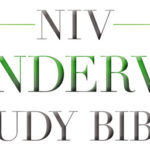In this four-part unit, we’re studying the foundational truths about God’s mission. In the first lesson, we began our study with the reality that God is God of all the earth and mighty enough to carry out his mission. Then, in the second lesson, we studied that our powerful God also holds a powerful love for mankind, a love that is the motivation for his mission.
Now, in Lesson Three, we’ll look at how God’s mission focused on God’s choice of one man, Abraham, and the people who trace their lineage to Abraham, Israel, through whom to work to carry out God’s mission now and into the future. In three passages, we’ll see how God chose to work through one man and one people to bring the fullness of God’s blessing to all people in Jesus.
Our three focal passages for this study have a common characteristic in form. They all contain promises that speak of Israel’s future; first by God to Abram, then by God to Moses, then by Mary about God’s promises to Israel fulfilled through Jesus.
Genesis 12:1-3: It (re)starts with a promise
When reading the early portions of Genesis, the question arises, “After the sin in the Garden of Eden, how can man’s relationship with God be restored?” God already has responded to man’s sin again, sending a cataclysmic flood that destroys all on the earth but a God-worshipping family and the animals they’ve sheltered. He then responds to man’s pride in building the tower of Babel by scattering men through the confusion of different languages. Neither act seems redemptive, but punitive.
But redemption is found in Genesis 12:1-3, when God takes the world in a new direction by making a promise to one man: Abram, later to be called Abraham. It will be the restart of placing man in a relationship with God once again. In these three verses, God makes Abram four promises that will set the stage for a spiritual renewal for the world. They include:
• “Go … to the land which I will show you and I will make you a great nation” (vv. 1-2). God’s promise not only extends to a geographic location for Abram to build a home, but to the descendants that Abram, who along with his wife Sarai is childless.
• “I will bless you” (v. 2). When God promises blessing, he promises to become an active, life-changing force in someone’s life. It is a promise that will extend not only to Abram’s family, but to all of the nation that he will found.
• “I will make your name great” (v. 2). A great name means power and reputation. Just one chapter prior, the rulers of Babel had tried to make a great name for themselves at the exclusion of God, and God punished them. Abram’s power and reputation would be built solidly on the God of earth.
• “You will be a blessing … and the one who curses you I will curse. And in you all the families of the earth shall be blessed.” All of the other promises are tiny compared to this last one. This is the promise that, unknown to Abram, will set in motion the lineage that will lead to Jesus. This promise by God to make Abram a blessing to all the earth and to “curse the one who curses you” also carries the promise of Genesis 3:15, when God promised the serpent (Satan) that the seed of Eve will crush him.
Sign up for our weekly edition and get all our headlines in your inbox on Thursdays
Were these promises fulfilled? Most of them were fulfilled in Abram’s lifetime, but their ultimate fulfillment would not be seen by his eyes. God’s promises are eternal, and we, like, Abram, must faithfully believe they will come to fruition in God’s timing.
“A kingdom of priests” (Exodus 19:1-6)
In our second passage, we next hear God’s promises to the nation Abram started—Israel. They’ve seen God’s promises fulfilled and have seen themselves in slavery, too. Looking forward to returning to their promised land after fleeing slavery in Egypt, they are in the wilderness near Mount Sinai with their leader, Moses. It is here that God will make his covenant with the people, a covenant that keeps the spirit of his promise to Abram, but expands on it.
In Exodus 19:1-6, God reminds the people through Moses of his mighty power that brought them out of slavery, but in verse 6, he makes an additional promise that further defines the role of Israel in the future: “… and you shall be to me a kingdom of priests and a holy nation.” It is a role, says one commentator, that sets Israel as the mediator between God and the rest of the world.
The promise continued through Mary (Luke 1:46-55)
And in Luke, we see God’s promises fulfilled through the impending virgin birth of Jesus by his mother, Mary. The young Mary has gone to see her cousin Elizabeth, who is carrying John, who will act as a herald for Jesus. Elizabeth, upon seeing Mary, breaks into a prophetic voice and asks Mary, “How has the mother of my Lord come to me?” Her declaration is a fulfillment recounted in Matthew 1:1, which prophesies that the Messiah will come from the lineage of Abraham and David, which Mary is.
Hearing this pronouncement, Mary gives a hymn-like response, and in verse 48. She says, “from this time on, all nations will count me blessed.” And in verses 54-55, she recounts the promise made to Abraham when she says, “He has given help to Israel … as he spoke to our fathers, to Abraham and his offspring forever.”
It is a confirmation of God’s promises that he gave Abram when he commanded him to go find a new land and confirmation that the world would be blessed by Abraham’s following God’s direction.
Questions to consider
• What does God’s call to Abraham have to do with me?
• Does God always deliver on his promises?
• What does God promise us?














We seek to connect God’s story and God’s people around the world. To learn more about God’s story, click here.
Send comments and feedback to Eric Black, our editor. For comments to be published, please specify “letter to the editor.” Maximum length for publication is 300 words.